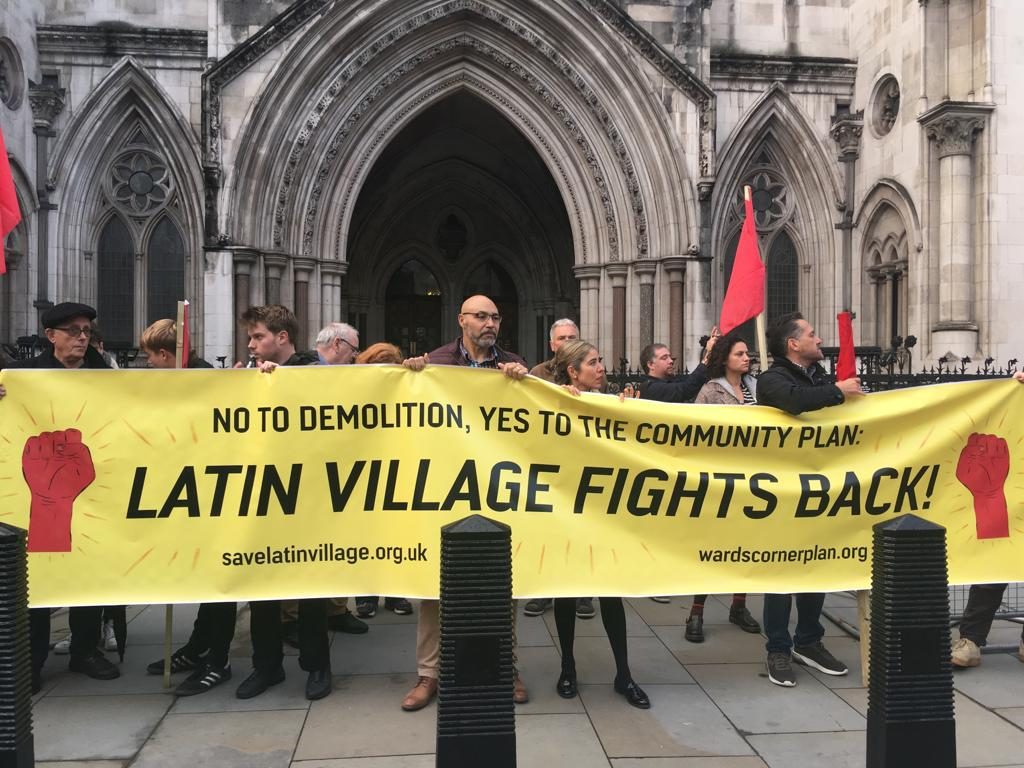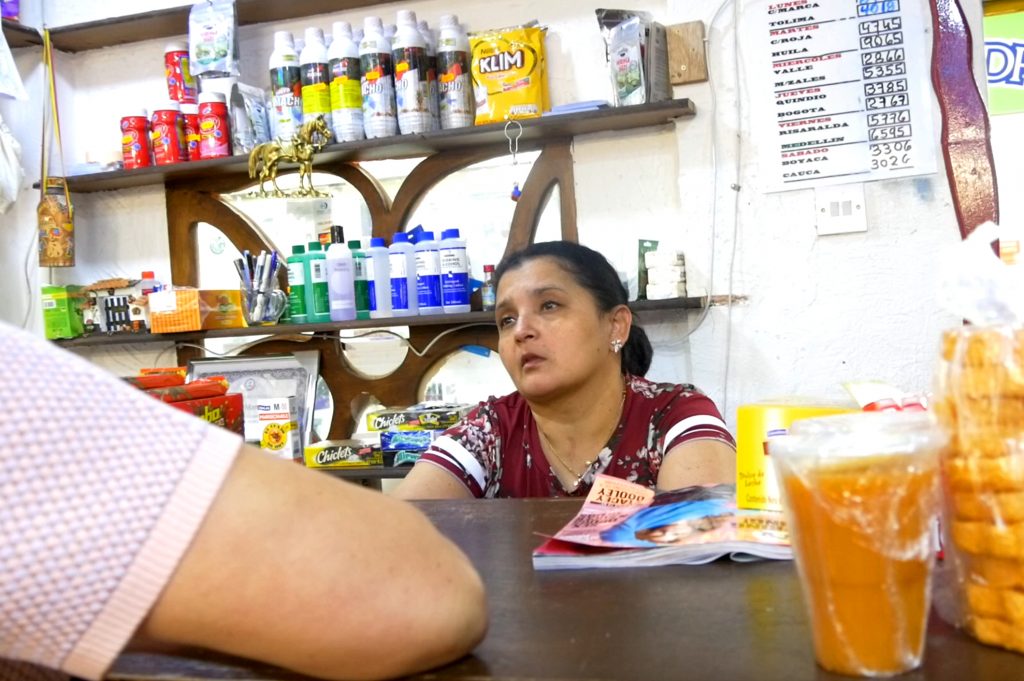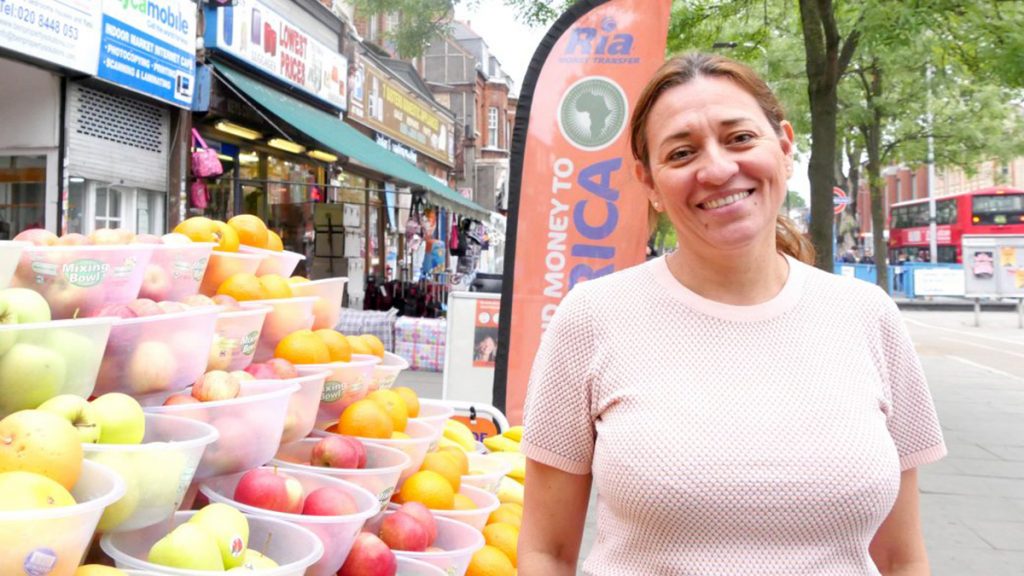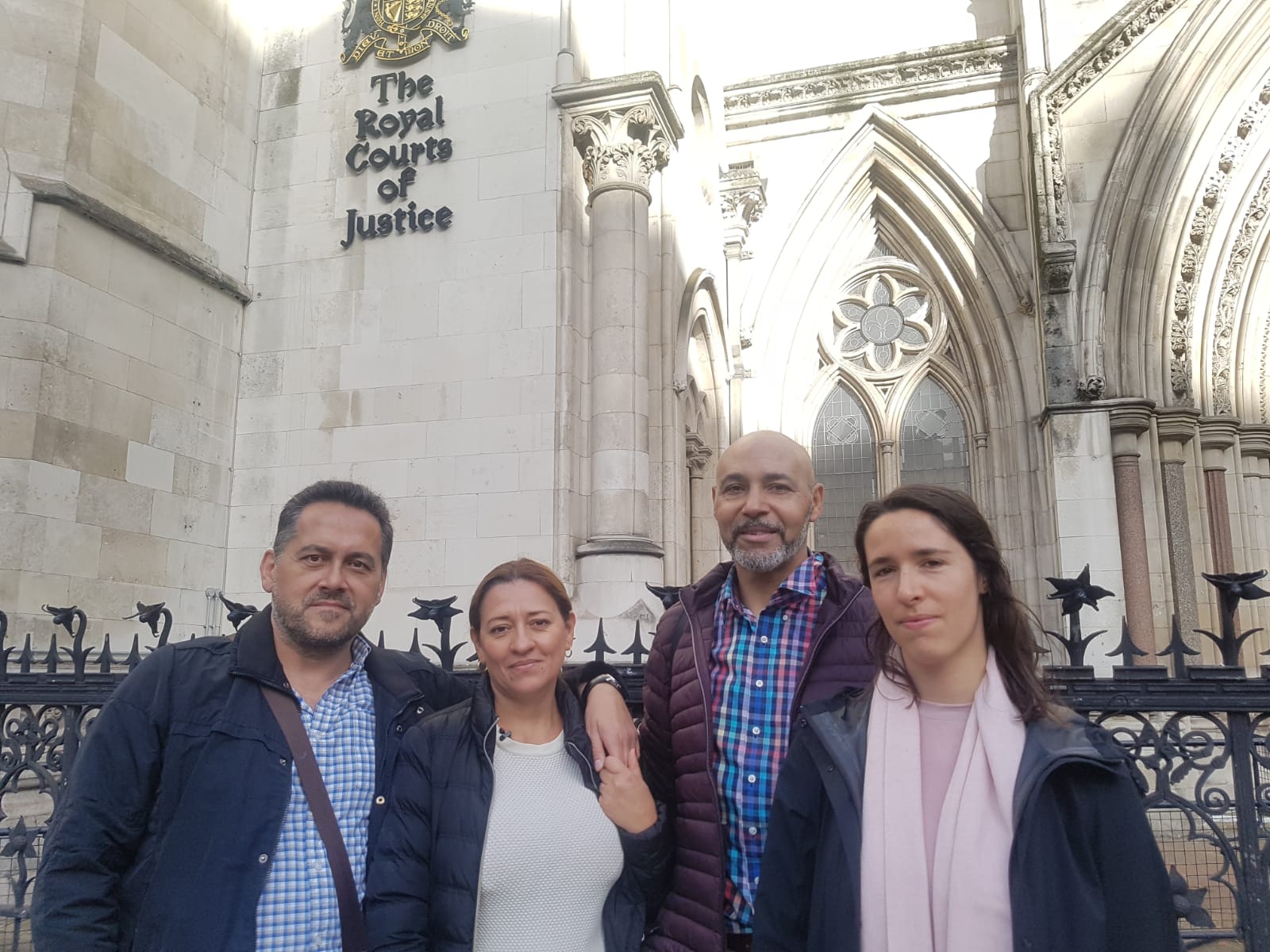Traders at one of the UK’s only Latin American markets have lost their legal battle to save it from being demolished and redeveloped.
High Court Judge Robert Jay upheld the compulsory purchase of north London’s “Latin Village”, an indoor market in Seven Sisters, on Thursday (10 October).
The order allows for private landlord Grainger Plc to tear the market down and replace it with 196 flats and a shopping centre, plans which traders argue will infringe on their cultural rights.
Trader Nicholas Amayo – who brought the claim alongside Carlos Burgos with the backing of a grassroots campaign group – told EachOther that he is considering appealing the decision.
“This is disappointing but far from being disheartened we are going to get together and fight on,” he said. “We have done this not just to walk away.”
The traders have also been ordered to cover legal costs totalling £10,000.
What Was The Case About?

Campaigners from Save Latin Village outside the Royal Courts of Justice. Image Credit: Victoria Alvarez.
The traders argue the redevelopment plans will impinge upon a number of their rights as protected by the Human Rights Act and treaties such as the International Covenant of Social, Economic and Cultural Rights.
Among these is the traders’ right to maintain their Latin American ethnic identity, which is protected under Article 8 of the Human Rights Convention, they argued.
Article 8 is qualified, meaning that the state can take proportionate steps to interfere with it for specific reasons including preventing crime and disorder.
It was also argued CPO infringes on the community’s right not to be discriminated against, as it disproportionately affects Latin Americans and their right to enjoy private property.
However, the right to enjoy private property – protected by Article 1 of Protocol 1 of the Human Rights Convention – also makes allowances for CPOs where “a fair balance between the rights of the individual property owners and the rights of the community” is struck.
Why Did The Traders Lose?

Image credit: Aaron Walawalkar.
The case hinged on whether or not former Housing Secretary James Brokenshire’s decision to approve a compulsory purchase order (CPO), and therefore allowing Haringey Council to buy up the market, was based on a “fundamental misunderstanding” of how it would affect traders.
Marc Willers QC told the court on Tuesday that the Housing Secretary “has effectively underplayed or misunderstood and failed to grapple with the impact of the CPO on cultural rights.”
The court heard that this was due to planning inspector James Felgate giving an “erroneous interpretation” of Grainger’s commitment to guarantee the price of traders’ rent for five years in his 2018 CPO report to the department.
The court heard that one bullet point in the inspector’s report suggested traders’ rents will be guaranteed to rise by no more than two percent per year indefinitely.
The reality, however, is that Grainger had only agreed to guarantee rents for five years and they would be set at open market rates after that. Willers argued this would diminish the markets’ prospects of survival, weakening any public interest arguments which could justify some infringement upon the traders’ rights.
There is a “genuine doubt”, Willers argued, about whether the government’s decision was influenced by this error.
“If we are right that the secretary of state was misled, that draws into question the balancing exercise that he had to undertake,” he said.
Were this bullet point to have been accurate, Willers added, “there is a realistic possibility that [the Housing Secretary] might have come to the opposite view.”
But, handing down his judgment on Thursday, Mr Justice Jay said: “I have not been persuaded that the claimant’s submission is realistic. The section could have been a slip of drafting that the inspector failed to correct.”
Siding with barrister Richard Honey, who represented the government, he said it was “inherently incredible” that the inspector could have believed the rent guarantee would continue indefinitely.
He cited sections of the report in which traders expressed fears they would be “thrown to the wolves on the open market after the five years has elapsed”, among others.
“It’s wholly impossible that the inspector overlooked all this evidence,” Jay added. “Overall, I have not been persuaded by Mr Willers’ argument that a genuine doubt exists. Ground one therefore fails and this application under section 23 of the acquisition of land act is dismissed.”
A Cultural Hub

Victoria Alvarez, who came to the UK from Colombia more than 20 years ago, told EachOther the market has become a “microcosm” of Latin American culture. Image Credit: Aaron Walawalkar.
Seven Sisters Market is home to 60 units containing independent businesses – including restaurants, nail salons, bakeries and money exchanges – which employ around 160 people in total.
It has developed into a “microcosm” of the Latin American culture across the last two decades. The court heard that entering the market feels like being transported to Medellin in Colombia.
The site has been earmarked for redevelopment by Haringey Council since at least 2004. This has been met with opposition from traders for more than a decade, amid fears the cultural character of the market will be undermined and rents will become unaffordable.
United Nations experts released a statement in March this year labelling Grainger’s scheme a “human rights threat” which could displace an estimated 160 people.
Grainger was granted planning permission to redevelop the market in 2012. They have offered to move the market to a temporary new location, but traders claim rents that will go up and they would be put out of business.







